- Orders of precedence in the People's Republic of China
-
Orders of precedenceThe political ranking of the People's Republic of China is the ranking of political leaders in China, by order of presumed political power. Although there is no formally published ranking, there is usually an established convention and protocol, and the relative positions of Chinese political figures can usually be deduced from the order in meetings and especially by the time and order which figures are covered by the official media.
Depending on the person and the time period, the hierarchy will vary accordingly. Although Chinese political positions are becoming increasingly institutionalized, part of the power of Chinese leaders still derives from who they are, rather than what position they hold. The informal role as Party "Center" (currently the position of General Secretary) is an example of the continuing importance of non-institutionalized and informal practices of power.
Individuals can hold multiple top leadership titles but also be unable to claim to be the de facto ruler as was the case with Chairman Hua Guofeng, when "Paramount leader" Deng Xiaoping was present. The traditional ranking system was based upon the hierarchical line of the politburo standing committee; however, "special" cases do arise as it is the case with Jiang Zemin and the 4th Generation leaders. Jiang, although retired from the politburo and the central committee, was nonetheless ranked number two for being the all-powerful CMC chairman until his resignation on September 19, 2004.
Contents
Leaders of the Party and the State
By convention, persons holding positions of the Vice-Chairs of the NPC or above are referred to "Leaders of the Party and the State" (党和国家领导人) in the official media. A highly typical ranking is as follows:
Rank Official Title Current Occupant 1 General Secretary of the Communist Party of China Hu Jintao 2 President of the People's Republic of China 3 / 4 Chairman of the Standing Committee of the NPC Wu Bangguo Premier of the State Council of the People's Republic of China Wen Jiabao 5 Chairman of the National Committee of the CPPCC Jia Qinglin 6 Chairman of the Central Military Commission Hu Jintao 7 Vice President of the People's Republic of China Xi Jinping Order of precedence
Official state media, when reporting news pieces, adhere to strict ranking protocol when the news involves multiple top leaders. As a result, the news overlooks the actual importance of the story attached to each leader, rather the news order is determined by political ranking alone. For example, if the Premier was on a relief visit to a region damaged by an earthquake, and the Chairman of the National People's Congress happened to be chairing a regular NPC meeting, the NPC chair would always have his news item placed before that of the Premier. The order of precedence is strictly adhered to when seating leaders at official meetings and functions. The current order of precedence is as follows (bolded members of first section are current members of the Politburo Standing Committee) :
Current Members of the Politburo Standing Committee
Other Members of the CPC Politburo
- In order of surname strokes
- Xi Jinping, Top-ranked Secretary of CPC Secretariat, Vice-President
- Wang Gang, Vice-Chair of CPPCC
- Wang Lequan, Party chief of Xinjiang Autonomous Region
- Wang Zhaoguo, Vice-Chairman of National People's Congress
- Wang Qishan, Vice-Premier
- Hui Liangyu, Vice-Premier
- Liu Qi, Party chief of Beijing, head of Beijing Olympics organizing committee
- Liu Yunshan, Secretary in CPC Central Secretariat, Media and Communications minister
- Liu Yandong, First State Councilor
- Li Changchun, Propaganda chief
- Li Keqiang, First Vice-Premier
- Li Yuanchao, Secretary in CPC Central Secretariat, CPC Organization Department head
- Wu Bangguo, Chairman of the Standing Committee of the National People's Congress
- Wang Yang, Party chief of Guangdong
- Zhang Gaoli, Party chief of Tianjin
- Zhang Dejiang, Vice-Premier
- Zhou Yongkang, Head of the Political and Legislative Affairs Committee
- Hu Jintao, General Secretary, President, Central Military Commission Chairman
- Yu Zhengsheng, Party chief of Shanghai
- He Guoqiang, Head of Central Commission for Discipline Inspection
- Jia Qinglin, head of the People's Political Consultative Conference
- Xu Caihou, Vice-Chairman of Central Military Commission
- Guo Boxiong, Vice-Chairman of Central Military Commission
- Wen Jiabao, Premier of the State Council
- Bo Xilai, Party chief of Chongqing
Former leaders from the Politburo Standing Committee or equivalent
in order of seniority at the time they were in office
Name Image Born year Party-joining year Former highest post(s) Retirement year Jiang Zemin 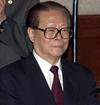
1926 1946 General Secretary of the Communist Party of China
President of the People's Republic of China
Chairman of the Central Military Commission2005 Li Peng 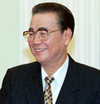
1928 1945 Member of the CPC Politburo Standing Committee
Premier of the People's Republic of China
Chairman of the Standing Committee of the NPC2003 Wan Li 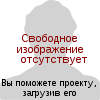
1916 1936 Member of the CPC Politburo
Chairman of the Standing Committee of the NPC1993 Qiao Shi 
1924 1940 Member of the CPC Politburo Standing Committee
Chairman of the Standing Committee of the NPC1998 Zhu Rongji 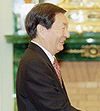
1928 1949 Member of the CPC Politburo Standing Committee
Premier of the People's Republic of China2003 Li Ruihuan 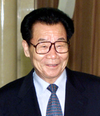
1934 1959 Member of the CPC Politburo Standing Committee
Chairman of the National Committee of the CPPCC2003 Song Ping 
1917 1937 Member of the CPC Politburo Standing Committee 1992 Wei Jianxing 
1931 1949 Member of the CPC Politburo Standing Committee
Secretary of the CPC Central Commission for Discipline Inspection2002 Li Lanqing 
1932 1952 Member of the CPC Politburo Standing Committee
Vice Premier of the People's Republic of China2003 Zeng Qinghong 
1939 1960 Member of the CPC Politburo Standing Committee
Secretary of the CPC Central Secretariat
Vice President of the People's Republic of China2008 Wu Guanzheng 
1938 1962 Member of the CPC Politburo Standing Committee
Secretary of the CPC Central Commission for Discipline Inspection2007 Luo Gan 
1935 1960 Member of the CPC Politburo Standing Committee
Secretary of the CPC Central Political and Legislative Affairs Committee2007 Members of the Secretariat of the Communist Party of China
- Vice-Chairmen of the Central Military Commission
- Secretariat of the Communist Party of China Central Committee
- He Yong
- Ling Jihua
- Wang Huning
- Vice-Chairmen of the National People's Congress (In following order)
- Wang Zhaoguo (already mentioned)
- Lu Yongxiang
- Uyunqimg (Mongol)
- Han Qide
- Hua Jianmin
- Chen Zhili
- Zhou Tienong
- Li Jianguo
- Ismail Tiliwaldi (Uyghur)
- Jiang Shusheng
- Chen Changzhi
- Yan Junqi
- Sang Guowei
- State Councilors: Liu Yandong, Liang Guanglie, Ma Kai, Meng Jianzhu, Dai Bingguo (in order of rank)
- Chairman of the Supreme People's Court (Wang Shengjun)
- Chairman of the Supreme People's Procuratorate (Cao Jianming)
- Vice-chairpersons of the CPPCC (In following order)
- Wang Gang
- Liao Hui
- Du Qinglin
- Ngapoi Ngawang Jigme (Tibetan)
- Pabra Grimlge (Tibetan)
- Ma Man-kei
- Bai Lizhen
- Chen Kuiyuan
- Abrati Abdruashti (Uygur)
- Li Zhaochuo
- Huang Mengfu
- Tung Chee Hwa
- Zhang Meiying
- Zhang Rongming
- Qian Yunlu
- Sun Jiazheng
- Li Jinhua
- Zheng Wantong
- Deng Pufang
- Wan Gang
- Li Wenyi
- Luo Fuhe
- Chen Zhongxing
- Wang Zhizhen
- Members of the Central Military Commission
- Heads of Ministries and Government agencies under the State Council (in following order)
- Minister of Foreign Affairs Yang Jiechi
- Minister of National Defense Liang Guanglie earlier on list
- Chairman of the State Development and Reform Commission Zhang Ping
- Minister of Education Zhou Ji
- Minister of Science and Technology Wan Gang earlier on list
- State Ethnic Affairs Commission Yang Jing (Mongol)
- Minister of Public Security Meng Jianzhu earlier on list
- Ministry of State Security Geng Huichang
- Minister of Supervision Ma Wen
- Minister of Civil Affairs Li Xueju
- Minister of Justice Wu Aiying
- Minister of Finance Xie Xuren
- Minister of Personnel Yin Weimin
- Minister of Labor and Social Security Tian Chengping
- Minister of Land and Resources Xu Shaoshi
- Minister of Construction Jiang Weixin
- Minister of Railways Liu Zhijun
- Minister of Communications Li Shenglin
- Minister of Information Industry Wang Xudong
- Minister of Water Resources Chen Lei
- Minister of Agriculture Sun Zhengcai
- Minister of Commerce Chen Deming
- Minister of Culture Cai Wu
- Minister of Health Chen Zhu
- State Population and Family Planning Commission Li Bin
- Governor of the People's Bank of China Zhou Xiaochuan
- National Audit Office (Auditor General) Liu Jiayi
Provincial party secretaries/Governors
- (Follows a traditional order for provinces; this order is the convention on all national and provincial maps)
- Beijing Municipality (Party Chief Liu Qi [previously mentioned], Mayor Guo Jinlong)
- Tianjin Municipality (Party Chief Zhang Gaoli [previously mentioned], Mayor Huang Xingguo)
- Hebei (Party Chief Zhang Yunchuan, Governor Hu Chunhua)
- Shanxi (Party Chief Zhang Baoshun, Governor Wang Jun)
- Inner Mongolia Autonomous Region (Party Chief Chu Bo, Chairman Bagatur)
- Liaoning (Party Chief Wang Min, Governor Chen Zhenggao)
- Jilin (Party Chief Sun Zhengcai, Governor Han Changfu)
- Heilongjiang (Party Chief Ji Bingxuan, Governor Li Zhanshu)
- Shanghai Municipality (Party Chief Yu Zhengsheng [previously mentioned], Mayor Han Zheng)
- Jiangsu (Party Chief Liang Baohua, Governor Luo Zhijun)
- Zhejiang (Party Chief Zhao Hongzhu, Governor Lu Zushan)
- Anhui (Party Chief Wang Jinshan, Governor Wang Sanyun)
- Fujian (Party Chief Lu Zhangong, Governor Huang Xiaojing)
- Jiangxi (Party Chief Su Rong, Governor Wu Xinxiong)
- Shandong (Party Chief Jiang Yikang, Governor Jiang Daming)
- Henan (Party Chief Xu Guangchun, Governor Guo Gengmao)
- Hubei (Party Chief Luo Qingquan, Governor Li Hongzhong)
- Hunan (Party Chief Zhang Chunxian, Governor Zhou Qiang)
- Guangdong (Party Chief Wang Yang [previously mentioned], Governor Huang Huahua)
- Guangxi Zhuang Autonomous Region (Party Chief Guo Shengkun, Chairman Ma Biao)
- Hainan (Party Chief Wei Liucheng, Governor Luo Baoming)
- Chongqing Municipality (Party Chief Bo Xilai [previously mentioned], Mayor Wang Hongju)
- Sichuan (Party Chief Liu Qibao, Governor Jiang Jufeng)
- Guizhou (Party Chief Shi Zongyuan, Governor Lin Shusen)
- Yunnan (Party Chief Bai Enpei, Governor Qin Guangrong)
- Tibet Autonomous Region (Party Chief Zhang Qingli, Chairman Qiangba Puncog)
- Shaanxi (Party Chief Zhao Leji, Governor Yuan Chunqing)
- Gansu (Party Chief Lu Hao, Governor Xu Shousheng)
- Qinghai (Party Chief Qiang Wei, Governor Luo Huining)
- Ningxia Hui Autonomous Region (Party Chief Chen Jianguo, Chairman Wang Zhengwei)
- Xinjiang Uyghur Autonomous Region (Party Chief Wang Lequan [previously mentioned], Chairman Nur Bekri)
- The Special Administrative Region of Hong Kong (Chief Executive Donald Tsang)
- The Special Administrative Region of Macau (Chief Executive Fernando Chui)
- Representatives of Taiwan Province
All subsequent rankings follow the Chinese political ranking system.
Rankings below the National Leadership
Within the PRC, there is an established convention as to the ranking of officials below the central leadership. Unlike in the west, the Provincial leaders do not enjoy an elevated presence in their own province. Rather they must still be placed behind all national leaders listed above.
Departmental heads of the Communist Party of China, and ministers of the State Council are both called bùzhǎng (部长; literally "Head of Department"), but the Party heads are ranked half a rank above cabinet ministers, reflecting the Party's "vanguard" status. Thus, for example, the head of the Party's International Department (中联部) is treated as half a rank above the minister for Foreign Affairs (外交部). However, this is not true as Departmental heads share the same rank and are treated with the same benefits as cabinet ministers.[1]
See also
References
Categories:- Politics of the People's Republic of China
- Orders of precedence
Wikimedia Foundation. 2010.









